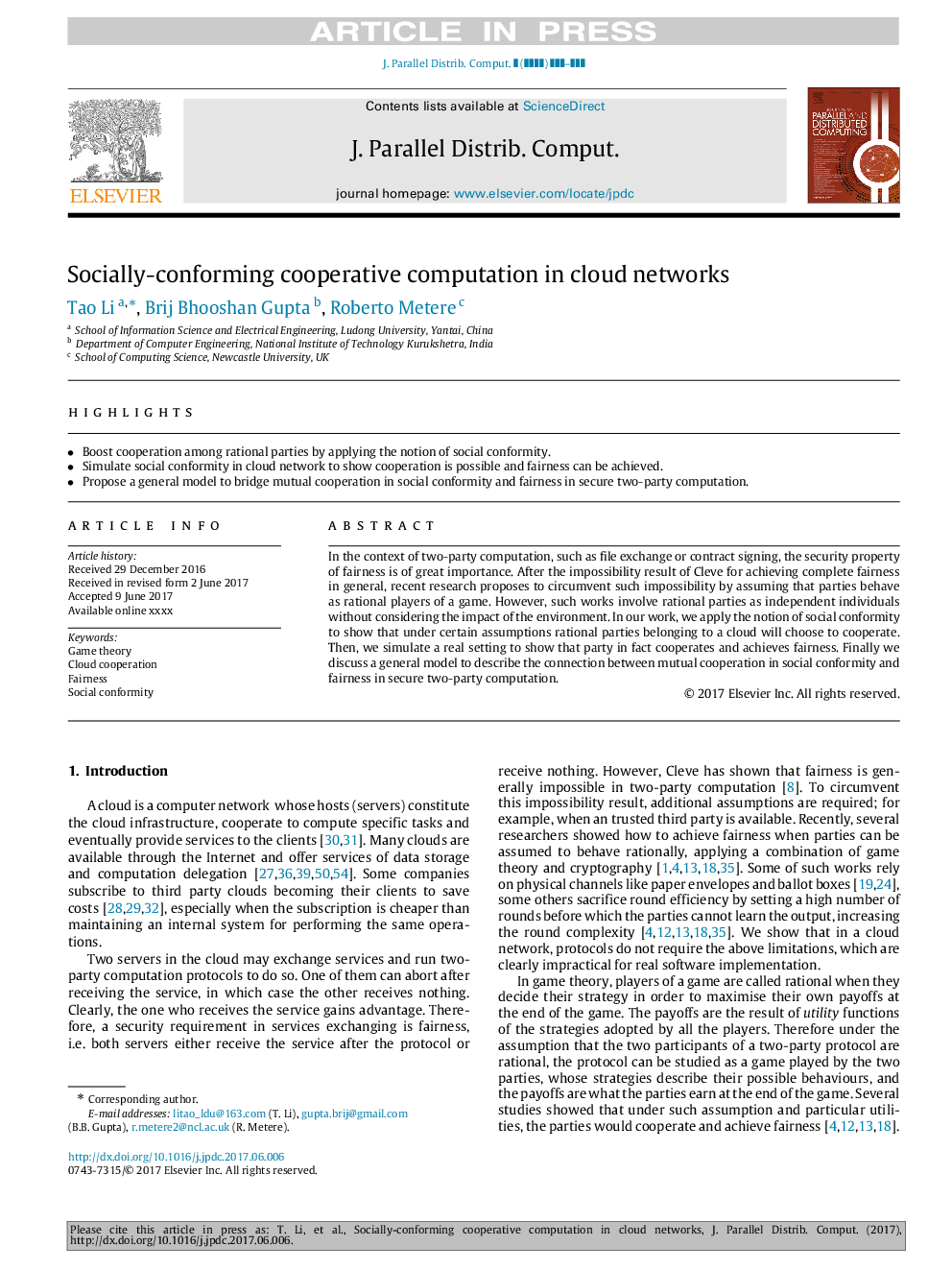| Article ID | Journal | Published Year | Pages | File Type |
|---|---|---|---|---|
| 6875023 | Journal of Parallel and Distributed Computing | 2018 | 7 Pages |
Abstract
In the context of two-party computation, such as file exchange or contract signing, the security property of fairness is of great importance. After the impossibility result of Cleve for achieving complete fairness in general, recent research proposes to circumvent such impossibility by assuming that parties behave as rational players of a game. However, such works involve rational parties as independent individuals without considering the impact of the environment. In our work, we apply the notion of social conformity to show that under certain assumptions rational parties belonging to a cloud will choose to cooperate. Then, we simulate a real setting to show that party in fact cooperates and achieves fairness. Finally we discuss a general model to describe the connection between mutual cooperation in social conformity and fairness in secure two-party computation.
Keywords
Related Topics
Physical Sciences and Engineering
Computer Science
Computational Theory and Mathematics
Authors
Tao Li, Brij Bhooshan Gupta, Roberto Metere,
